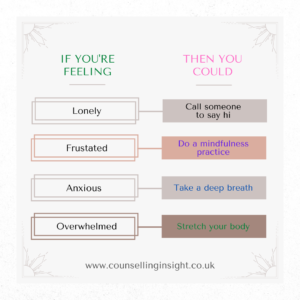With the announcement that the NHS will now consider offering therapy, exercise, mindfulness and meditation for mild depression, it feels like more mental health tools might be available for those in need.
This is not a post debating what works and what does not, or one that justifies one method over the other-i will leave that for policy makers, academics and researchers.
For those that need support, mental health tools need to be available at the point of need, rather than at the point of availability.Easier said than done, right?
We often want a quick fix-we want to stop feeling and ultimately go back to a “used to feel like” place-better, smoother, happier.
The reality is, there is no quick fix: wellbeing takes time, effort and consistency.

Developing of practical mental health tools is a required processed in an ever changing environment. We are not needing to simply carry on, regardless of the consequences, but we can choose to focus on not only pushing through, but thriving through adversity.
Connecting with others, getting physically active, getting enough sleep, eating well, helping others, living in the now, can all be techniques that will boost our wellbeing and ensure we are in a mental health space that is beneficial to ourselves as individuals and by association, to those around us.
All we can do is try; and if things get though, and professional support is needed, reach out.
